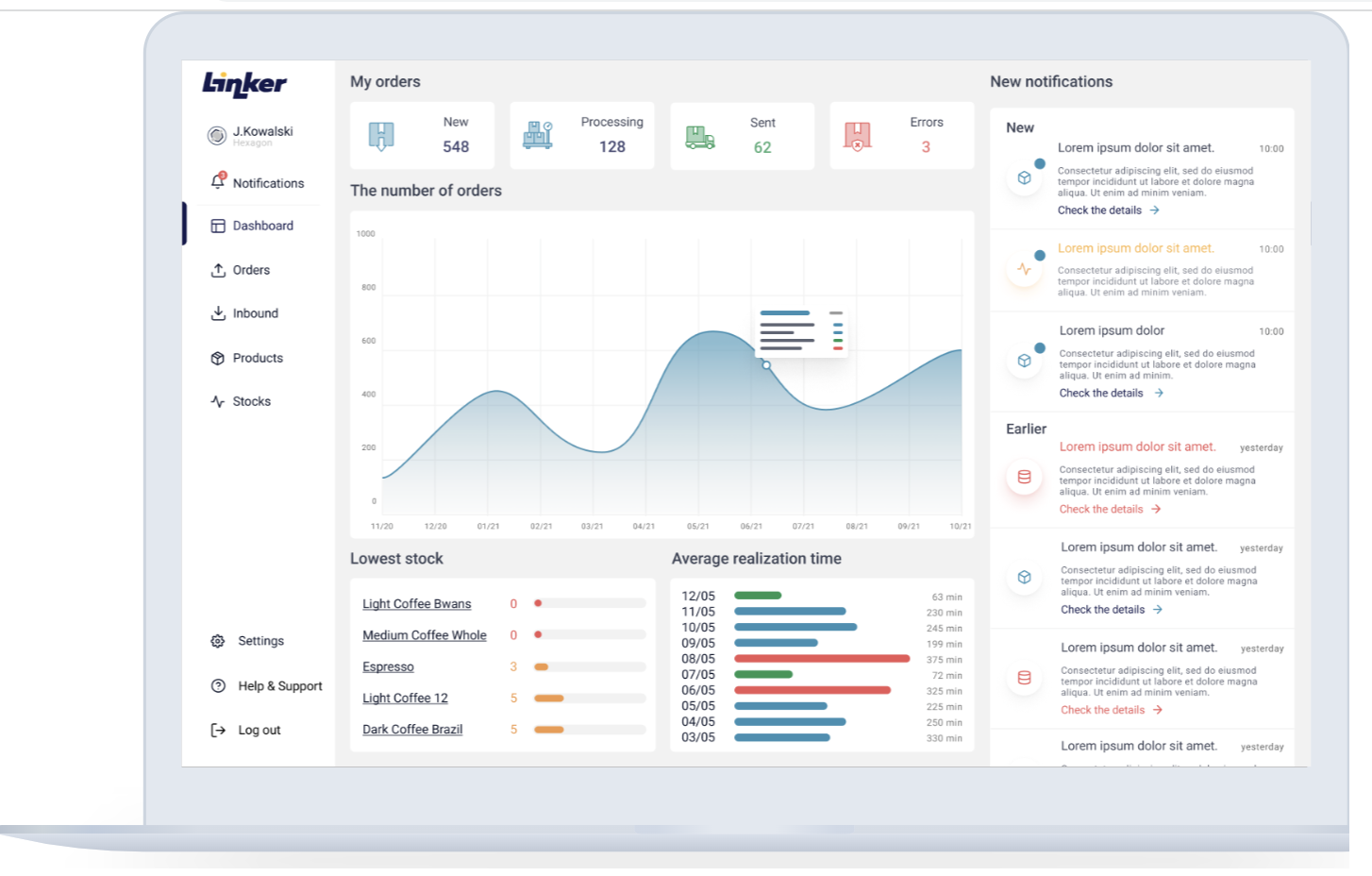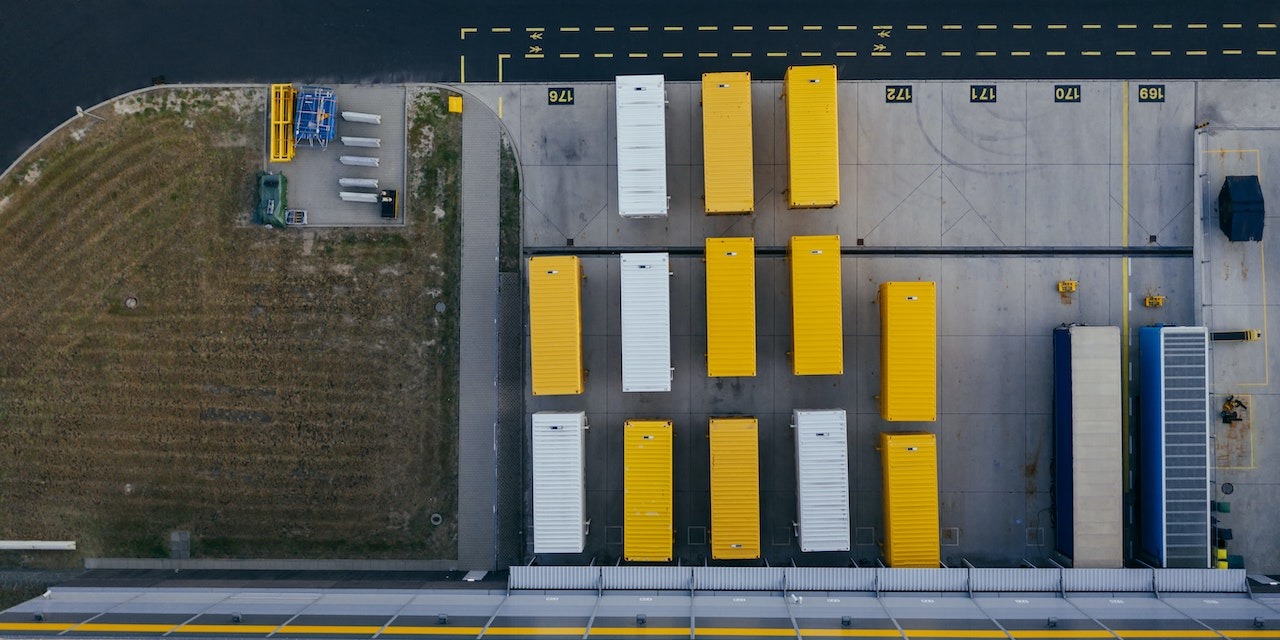In order to answer your request, we are obligated to process the data given above. Sometimes, however, we would like to use them for slightly different purposes, such as statistical data or informing you about our new products and services.We promise that we will use the given information for communication purposes only. We also remind you that you can unsubscribe from our mailing at any time (see Privacy Policy).
Who doesn't know the saying money rules the world? Although it's most often used in a pejorative sense, in business money is simply the driving force - and the success of an enterprise depends on its financial health, income, and costs.
For this reason, many online business owners are keen on cost savings and, especially in times of crisis, seek them everywhere - including logistics. Since we know a bit about the matter, in today's post we will analyze the costs of using traditional third-party logistics (3PL) services and a fulfillment network.
Ready? So, let's get started!
3PL versus fulfillment network - what's the difference?
Well, I wouldn't be myself if I didn't start with the basics. Even if it may seem obvious, many times understanding the differences between one business profile and the other can be difficult.
3PL services are already popular and well-recognized, covering warehousing, inventory management, picking and packaging as well as order delivery to the final destination. By definition, they are provided by an external logistics provider who helps the online retailer to manage its supply chain. The geographical scope of their operations usually depends on their size, as they rely primarily on their own warehouses and transport fleet.
A fulfillment network is a larger concept based on partnerships between multiple providers, who also offer third-party services, but can reach much further than a single operator. At the heart of this idea is a powerful system, a kind of platform, that not only connects other providers but also serves as a tool for eCommerce businesses, that by joining the network can easily use their services.
Putting all this together, both solutions are able to offer fulfillment services and offload the logistics burden, while one does this with its own facilities and the other with the infrastructure of logistics partners. The difference may seem... small, right? In practice, however, it becomes more apparent.

How is the price of fulfillment services calculated and which solution is more cost-effective?
The truth is that the cost of fulfillment is determined by many factors: the number of goods stored (in the form of pallets, hangers, or cubicles), the type of products (hazardous materials are often more expensive to store and ship), the number of orders processed each month, the way they are packed and also the type of shipment (local or international).
For this reason, there is no single price list in logistics - the answer "it depends" is usually the only correct one. However, for the purposes of today's article, we will assume a few, average variables and try to explain the pricing structure of a third-party logistics provider and fulfillment network - using Linker Cloud as an example.
Let's say we are an ecommerce store called Perfect:
- we store x pallets of goods in the warehouse,
- we process about y orders per month,
- the product is standard (e.g., clothes),
- we pack the orders in regular packages,
- and deliver them to another European country - Z.
We are looking to outsource fulfillment and are unsure which solution would be best for our business. What should we consider?
Too small to count
Although they say that size doesn't matter, the opposite is true for third-party logistics companies and their cooperation with online retailers.
3PL providers tend to be rather restrictive when it comes to future fulfillment customers and set relatively high thresholds for possible co-working. This mainly applies to the number of orders processed per month and the stocked goods. Many small and medium-sized companies find it difficult and cannot qualify for this type of service at all.
But why? Growing customers or small customers require a lot of work, and take up warehouse space, but... they aren't necessarily profitable. Especially if they sell seasonal products or their sales aren't so regular yet.
Fulfillment carried out by the network doesn't make so many demands. Primarily, because the operators participating in the network negotiate with the network owner instead of the customer (ecommerce store) directly. So, the requirements or rates offered by the provider are simply better.
Thus, the business benefits from the price and also from the professional, know-how support it gets from an experienced team. To summarise this point: among network solutions, minimum entry thresholds aren't as common as with traditional 3PL providers, often none at all. Therefore, outsourcing of logistics operations can be started at pretty much any time.
High-performance software
I know, I know, it's not what you expected. Running an online business doesn't mean that your contact with technology ends with the service of the shop itself. Quite the opposite, the more you get into it, the more complicated it becomes.
With the increasing number of orders, automation is a necessity - trying to keep everything under control with manual tools is almost breakneck. Many online stores, therefore, choose to implement an additional solution that is supposed to be multifunctional - handling omnichannel sales, tracking order status and stock levels, etc. Some use off-the-shelf products, others decide to outsource the development of such software.
To make matters worse, the situation is similar for logistics service providers. And a warehouse without a proper system simply can't function. So, when ecommerce business and 3PL start to work together, the need to integrate both systems arises, and the problems begin. Or rather, the costs.
Depending on the chosen approach, the cost of integration and/or using the provider's system is transferred to the client (online store) in two ways:
- as a one-time fee
- or as a monthly subscription.
Costs may vary depending on system specification, IT resources needed and time needed for maintenance. While zero-issue connection cost just a few thousand EUR (2,5 - 5 k EUR / year) the more difficult ones can easily exceed even 15 - 20k EUR / year. But it doesn't stop there, because the more complex the integration, the more you have to pay. It's rare for a 3PL provider to even have its own IT team, so the price is usually set by an external entity. And the costs start to run into thousands...

In the case of network services, it is quite different. The success and viability of the network depend on good infrastructure and easy connections with new customers. As such, the network provider must have a team of developers who not only work on its continuous improvement but also know the nature of the various types of integrations, from custom solutions to ready-made products. This makes connecting a new customer much simpler and considerably cheaper - in fact, Linker Cloud does not charge for this at all. Warehouse automation technology is important, period.
At home or abroad?
One of the most essential elements of a fulfillment service is delivery. And the shipping costs are a factor that significantly contributes to the value of this service. So, the question here should be: where do you send the parcels?
Of course, size and weight also matter, but keeping in mind our assumptions a few paragraphs above, let's focus on distance. International parcels are generally more expensive than those sent locally - the greater the distance between the sending and receiving locations, the higher the price.
How important is the choice of fulfillment provider here? Let me explain.
3PL companies typically operate within a particular country and/or neighbouring countries - as such, they can deliver packages at a fair price. However, when an online retailer is interested in expanding its influence to other countries, shipping costs are much higher. And there is barely anything that can be done about it. When thinking seriously about a cross-border expansion, he is left with only one option - to look for another 3PL operator, in a new market, who will provide an identical service for him - only locally. Of course, you already realise what I am about to say, this will be another expense and investment of time. Has it crossed your mind to calculate this dedication into money? Well, we all very rarely do. Plus, there is a possible language barrier, negotiation difficulties, and the risk of dealing with the wrong company. A lot of warning flags.
When using a network solution, most of these factors are non-existent. By covering wide areas, usually continents, an online shop can operate in such a space with local fulfillment centers and competitive delivery prices, without worrying about searching, negotiating, or signing a contract with another provider. They can rest assured that the network has proven, trustworthy fulfillment partners, and that signing an agreement is a one-time event, giving them the right to expand their services as needed. Thus, they save money on potential further investments and working time which they don't have to spend.
If you have thought that all the cross-border or international sales are not so important, you had better take a look at global trends. Anyone who takes the ecommerce business seriously should be aware of this.
The fulfillment process itself
Last but not least: the fulfillment costs. The differences here won't be so obvious, it all depends on how complex the service is. Besides inventory storage, pick and pack, and despatch, do you need custom packaging and reverse logistics? Great, just have a good look at the quote and check for hidden fees in the small print that some companies use.
Savings: depends on you.
Summary
The fulfillment process is an extremely important element of ecommerce businesses, having a significant impact on customer satisfaction. However, to do it well, you don't need to have your own warehouse or employ a special team. Instead, you can trust the professionals who have mastered online order logistics.
To make sure you don't lose out, calculate the entire project from storage costs to profit margins, and make the best decision for your company!




